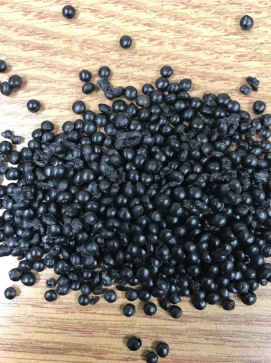via Recycling Today

Eastman, Kingsport, Tennessee, has announced that it is collaborating with Padnos and the United States Automotive Materials Partnership LLC (USAMP) on a concept feasibility study to recycle mixed plastic scrap recovered from automotive shredder residue (ASR). USAMP is a subsidiary of the United States Council for Automotive Research LLC (USCAR).
ASR consists of mixed plastic and other materials and currently end up in landfills or in waste-to-energy technologies. Under this initiative, Padnos, Holland, Michigan, will supply ASR as a feedstock for Eastman’s molecular recycling process. The company operates auto shredders in Holland and Grand Rapids, Michigan.
Read the full story here: https://www.recyclingtoday.com/article/padnost-eastman-usamp-studing-chemically-recycling-asr/





 High Impact Polystyrene for Sale
High Impact Polystyrene for Sale
You must be logged in to post a comment.